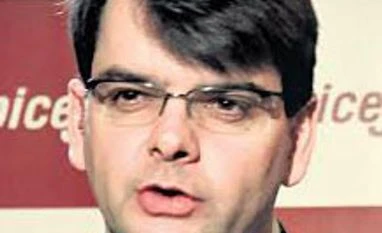A company spokesperson termed the development “market rumours”. Expat CEOs have a different style of functioning and come from a different aviation environment. These differences in working style often lead to friction.
“Indian promoters hire foreign CEOs because of their experience in aviation, but generally do not give up control of management,” said Parvez Damania, promoter of Damania Airways, amongst the several private airlines to take to the skies in 1990s. Another reason for changes in the top management could be the desire of owners to bring in trusted aides to control the company, especially since the airline business is a loss-making one.
Kingfisher's first president and chief operating officer, Alex Wilcox, left within months of the airline’s launch. Nigel Harwood replaced Wilcox, but he, too, left in a year. Till Sanjay Aggarwal joined Kingfisher, UB Group chairman and promoter Vijay Mallya managed the airline with three executive vice-presidents reporting to him.
Another airline which saw frequent changes in top management is Wadia group’s GoAir. Its first CEO, Graham Williamson, resigned even before the launch of the airline in 2005. It then hired former SpiceJet CEO Mark Winders as executive director in charge of strategy. Current CEO Giorgio De Roni took over from Wadia group veteran Kaushik Khona, who in turn had replaced another Italian, Edgardo Badiali, for the top post.
Other than these, there have been changes whenever a new management came on board the airline. Aggarwal joined SpiceJet when investor Willbur Ross pumped funds into the airline, replacing Siddhant Sharma. Recently, Gary Toomey replaced Nikos Kardassis as CEO in Jet Airways, following Etihad's decision to pick 24 per cent stake in the airline.
“Any business which bleeds cash on a daily basis puts pressure on the owners. The owners often don't realise that it is not the managers but the operating environment which causes the losses. In aviation, the costs are fixed but returns are not. It is then that the owners turn to their trusted aides to be in control,” said management consultant Raj Halve.
A former CEO of a private airline said that another cause of tension between the owners and the CEO is “expectation gap”. According to him, most Indian promoters have two main expectations from their CEO, which is to make the company debt-free and source partners or investors.
“I do not think fund-raising may have been the first mandate for Neil Mills. His objective was to stabilise the operations following the takeover by Kalanathi Maran. But by and large, the owners want to de-risk and want the CEO to make a profit and keep working capital under check.”
You’ve reached your limit of {{free_limit}} free articles this month.
Subscribe now for unlimited access.
Already subscribed? Log in
Subscribe to read the full story →

Smart Quarterly
₹900
3 Months
₹300/Month
Smart Essential
₹2,700
1 Year
₹225/Month
Super Saver
₹3,900
2 Years
₹162/Month
Renews automatically, cancel anytime
Here’s what’s included in our digital subscription plans
Access to Exclusive Premium Stories
Over 30 subscriber-only stories daily, handpicked by our editors


Complimentary Access to The New York Times
News, Games, Cooking, Audio, Wirecutter & The Athletic
Business Standard Epaper
Digital replica of our daily newspaper — with options to read, save, and share


Curated Newsletters
Insights on markets, finance, politics, tech, and more delivered to your inbox
Market Analysis & Investment Insights
In-depth market analysis & insights with access to The Smart Investor


Archives
Repository of articles and publications dating back to 1997
Ad-free Reading
Uninterrupted reading experience with no advertisements


Seamless Access Across All Devices
Access Business Standard across devices — mobile, tablet, or PC, via web or app



)
